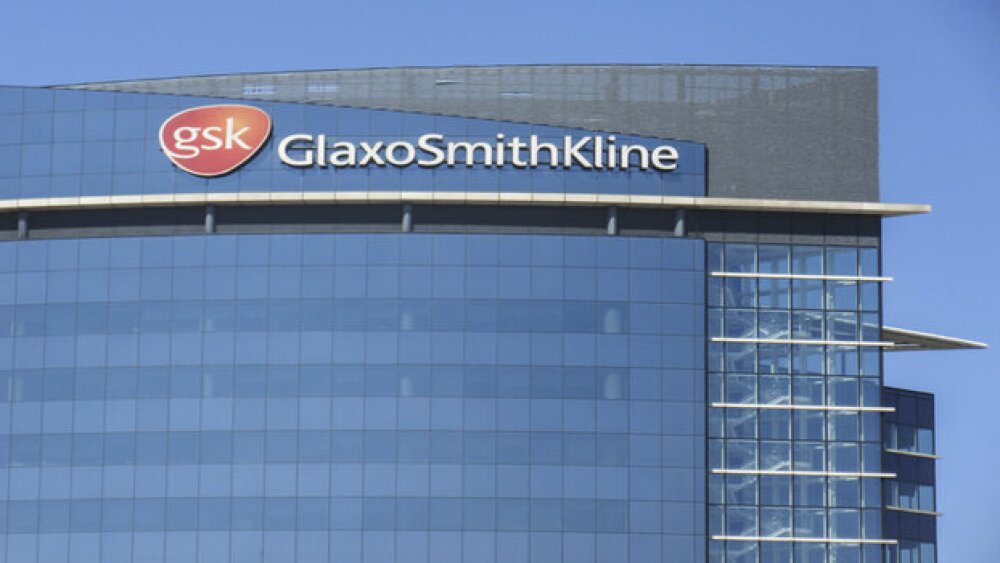The British pharma expects “meaningful” sales and earnings growth in 2024 and is upgrading its growth outlooks for 2026 and 2031, according to GSK CEO Emma Walmsley.
Pictured: GSK sign at its headquarters in London/iStock, William Barton
GSK racked up positive sales for 2023 thanks to a lift from its non-COVID line of vaccines and other medicines, according to the company’s fourth-quarter and full-year results announced on Wednesday.
The British pharma brought in £30.3 billion ($38.6 billion) in sales in 2023, marking a 5% growth rate. GSK’s vaccine sales increased by 25%, with its shingles vaccine Shingrix securing £ 3.4 billion ($4.3 billion) in sales last year.
The company’s RSV vaccine Arexvy generated £1.2 billion ($1.5 billion) in sales, while its “established vaccine” portfolio captured £3.3 billion ($4.2 billion) in sales. All these vaccines saw growth in their sales from 2022.
According to GSK, this growth in the vaccine space was driven by the launch of Arexvy in the U.S. and Shingrix sales in Europe and other regions internationally. For the its pandemic vaccines, sales mainly came from GSK’s share of 2023 contracted European volumes related to a COVID-19 booster developed with Sanofi.
In the specialty medicines category, the company’s HIV treatment brought in £6.4 billion ($8.2 billion), while its oncology medicines secured £731 million ($930 million) in sales. Xevudy, GSK’s SARS-CoV-2 treatment, only brought in £44 million ($56 million) in sales last year, a whopping 98% drop.
“GSK delivered excellent performance in 2023, with clear highlights being the exceptional launch of Arexvy and continued progress in our pipeline. We are now planning for at least 12 major launches from 2025, with new vaccines and specialty medicines for infectious diseases, HIV, respiratory and oncology,” GSK CEO Emma Walmsley said in a statement.
“As a result of this progress and momentum, we expect to deliver another year of meaningful sales and earnings growth in 2024, and we are upgrading our growth outlooks for 2026 and 2031,” Walmsley added.
Looking ahead, the pharma increased its 2021-2026 outlook increased to sales of more than 7% CAGR and adjusted operating profit of more than 11% CAGR, while the 2031 sales outlook has increased to over £38 billion ($48.4 billion) as it expects is sales to be “stable” even with the patent loss of Tivicay (dolutegravir).
However, there were some removals from GSK’s pipeline including a Phase II asset VIR2482, a monoclonal antibody to treat influenza, and two Phase I programs—a recombinant protein for K. pneumoniae and an anti-spike protein antibody for COVID-19.
GSK has been on a deals push to start 2024. In early January, the pharma agreed to buy Aiolos Bio in a $1.4 billion deal to access the company’s pipeline of assets in the respiratory and inflammatory space. Last month, GSK also sold around 300 million shares of its spin-off consumer healthcare business Haleon, raising $1.24 billion.
Tyler Patchen is a staff writer at BioSpace. You can reach him at tyler.patchen@biospace.com. Follow him on LinkedIn.






